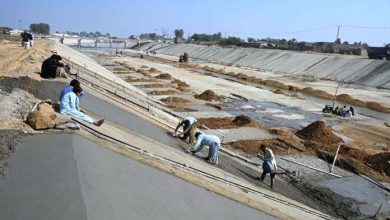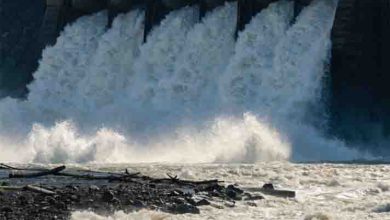USA Announces Action Plan on Global Water Security
U.S Vice President emphasizes the national security implications of water scarcity
Washington, D.C: U.S Vice President Kamala Harris on Wednesday unveiled a White House plan to advance global water security and emphasized the national security implications of water scarcity, according to CNN report.

Harris said the plan, which elevates water security as an “international priority,” is aimed at preventing conflict between nations and promoting equity and economic growth.
The vice president said the US is committed to expanding access to safe water, hygiene and sanitation services across the world. The US will also share data it is collecting to help manage and preserve global water resources. The US will also leverage its diplomatic resources to elevate the issue on the global stage, Harris said.
Water scarcity affects food production and public health, can lead to mass migration, exacerbates inequities, and disputes over access to water can lead to armed conflicts, Harris said.
“Many of our most fundamental national security interests depend on water security,” Harris said.
The vice president noted in many parts of the world the burden of collecting clean water disproportionately falls on women and girls. Around the world, women and girls spend 200 million hours per day collecting water, Harris said, who argued that time could be instead spent instead in school, at work or with loved ones.
“The past two-and-a-half years during the pandemic have demonstrated that our world is more interconnected and interdependent than ever before. Water scarcity is a global problem and it must be met with a global solution. So today, we make clear the United States will be a leader in the solution,” Harris said.
Harris said she has been “acutely aware” of the importance of water security since a young age, when she saw first-hand the effects of a drought in California.
“I remember how unsettling it was to imagine how our access to a resource so basic and essential as water, how that could become so uncertain, and we cannot take it for granted,” Harris said.
Harris highlighted funding from the bipartisan infrastructure bill allocated to remove every lead pipe in the nation within the next 10 years and improve the nation’s water infrastructure.
The event will mark the release of a one-year report of the Biden-Harris Administration’s Drought Resilience Interagency Working Group. The working group was created to address worsening drought conditions and water shortages, and its report focuses on implementation of the bipartisan infrastructure law’s water investments.
The action plan, the White House said in a fact sheet, “elevates water security as an essential element of the United States’ international efforts to achieve national security objectives that include increasing equity and economic growth; decreasing the risk of vulnerability to shocks, conflict and instability; building inclusive and resilient societies; bolstering health and food security; advancing gender equity and equality; and tackling climate change.
It has three pillars: “Advancing US leadership in the global effort to achieve universal and equitable access to sustainable, climate-resilient, safe and effectively managed WASH services without increasing greenhouse gas emissions;” “promoting sustainable management and protection of water resources and associated ecosystems to support economic growth, build resilience, mitigate the risk of instability or conflict, and increase cooperation;” and “ensuring that multilateral action mobilizes cooperation and promotes water security.







